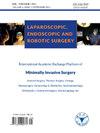减肥手术后胃食管反流病患者磁力括约肌增强的结果:系统回顾和荟萃分析
Q3 Medicine
引用次数: 0
摘要
目的:虽然减肥手术在世界范围内广泛进行,但患者经常会出现原有胃食管反流病(GERD)症状复发或出现新症状,其中一些症状对药物治疗有抗药性。本研究探讨磁括约肌增强术(MSA)的效果和结果,这是一种微创治疗胃食管反流的方法。方法全面检索PubMed、Cochrane、Scopus、Web of Science和谷歌Scholar数据库,检索自成立至2024年6月6日的相关研究,以评估MSA对接受减肥手术患者GERD健康相关生活质量(GERD- hrql)评分的影响以及质子泵抑制剂(PPI)使用的减少。使用了RStudio版本2023.12.0 + 369中的“ meta ”包。结果系统评价共纳入8项研究,meta分析纳入7项研究。MSA显著降低了GERD-HRQL评分(MD = - 27.55 [95% CI: - 30.99 ~ - 24.11], p <;0.01)和PPI使用(RR = 0.23(95%置信区间CI: 0.16 - 0.33), p & lt;0.01)。结论msa是一种可行的治疗方法,适用于有胃食管反流症状的患者。这种方法在降低GERD-HRQL评分和减少PPI使用方面显示出有希望的结果。本文章由计算机程序翻译,如有差异,请以英文原文为准。
The outcomes of magnetic sphincter augmentation in patients with gastroesophageal reflux disease post bariatric surgery: A systemic review and meta-analysis
Objective
Although bariatric surgeries are widely performed around the world, patients frequently experience the recurrence of pre-existing gastroesophageal reflux disease (GERD) symptoms or develop new symptoms, some of which are resistant to medical treatment. This study investigates the effect and outcome of magnetic sphincter augmentation (MSA), a minimally invasive treatment for GERD, in this population.
Methods
A thorough search of the PubMed, Cochrane, Scopus, Web of Science, and Google Scholar databases from inception until June 6, 2024 was performed to retrieve relevant studies that evaluated the effects of MSA on the GERD health-related quality of life (GERD-HRQL) score and the reduction in proton pump inhibitor (PPI) use in patients who underwent bariatric surgery. The “meta” package in RStudio version 2023.12.0 + 369 was used.
Results
A total of eight studies were included in the systematic review and seven studies were included in the meta-analysis. MSA significantly reduced the GERD-HRQL score (MD = −27.55 [95% CI: −30.99 to −24.11], p < 0.01) and PPI use (RR = 0.23 [95% CI: 0.16 to 0.33], p < 0.01).
Conclusion
MSA is a viable treatment option for patients with GERD symptoms who undergo bariatric surgery. This approach showed promising results in terms of reducing the GERD-HRQL score and reducing the use of PPI.
求助全文
通过发布文献求助,成功后即可免费获取论文全文。
去求助
来源期刊

Laparoscopic Endoscopic and Robotic Surgery
minimally invasive surgery-
CiteScore
1.40
自引率
0.00%
发文量
32
期刊介绍:
Laparoscopic, Endoscopic and Robotic Surgery aims to provide an academic exchange platform for minimally invasive surgery at an international level. We seek out and publish the excellent original articles, reviews and editorials as well as exciting new techniques to promote the academic development.
Topics of interests include, but are not limited to:
▪ Minimally invasive clinical research mainly in General Surgery, Thoracic Surgery, Urology, Neurosurgery, Gynecology & Obstetrics, Gastroenterology, Orthopedics, Colorectal Surgery, Otolaryngology, etc.;
▪ Basic research in minimally invasive surgery;
▪ Research of techniques and equipments in minimally invasive surgery, and application of laparoscopy, endoscopy, robot and medical imaging;
▪ Development of medical education in minimally invasive surgery.
 求助内容:
求助内容: 应助结果提醒方式:
应助结果提醒方式:


